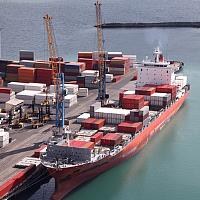(STRASBOURG) – The European Parliament approved an agreement Wednesday granting duty-free access to the EU for products from Namibia, Mozambique, Botswana, Swaziland and Lesotho, and improved market access for South Africa.
The Economic Partnership Agreement (EPA) with the six member states – members of the South African Development Community (SADC) – establishes a “positive discrimination”, ensuring immediate duty- and quota-free access for their exports to the EU market. It also creates new regional opportunities through more flexible use of rules of origin.
The African countries will liberalise 86% of their trade with the EU (74% for Mozambique) over ten years, with the exception of agricultural and fishery products. The deal replaces the previous interim agreements based on unilateral trade preferences and complies with World Trade Organisation (WTO) rules.
While the agreement covers only trade and development cooperation, it leaves the door open for services, investment, intellectual property and public procurement. To mitigate potential negative impacts on the SADC countries, several safeguards were added to the deal. The EU, for its part, undertakes not to subsidise its agricultural exports to these countries.
The deal also lists trade-related areas that could benefit from EU development cooperation funding, though none is pledged at this stage.
In a July resolution, international trade MEPs advocated strengthening the monitoring of the agreement to ensure that “its benefits for the people are maximized”. The committee also tabled an oral question to the Commission for this plenary on parliamentary oversight and civil society monitoring.
The deal is set to enter into force once the Council formally approves it and the national parliaments of the six African states ratify the text.
In the Cotonou Partnership Agreement of 2000, African, Caribbean and Pacific (ACP) countries and the EU agreed to negotiate reciprocal, though asymmetric, trade agreements to comply with WTO rules and to support these countries’ development and integration into the world economy.
Negotiations were to be concluded by the end of 2007, but the process took longer and the EU finished negotiations with six states of the SADC Group in July 2014. Angola finally decided not to enter into the agreement, but may join in the future.
Negotiations with six SADC states ended in 2014. The other eight (Democratic Republic of Congo, Madagascar, Malawi, Mauritius, Seychelles, Tanzania, Zambia and Zimbabwe) belong to other regional EPA groupings.
Further information, European Parliament
Adopted text (2016/0005(NLE)) will soon be available here (14.09.2016)


